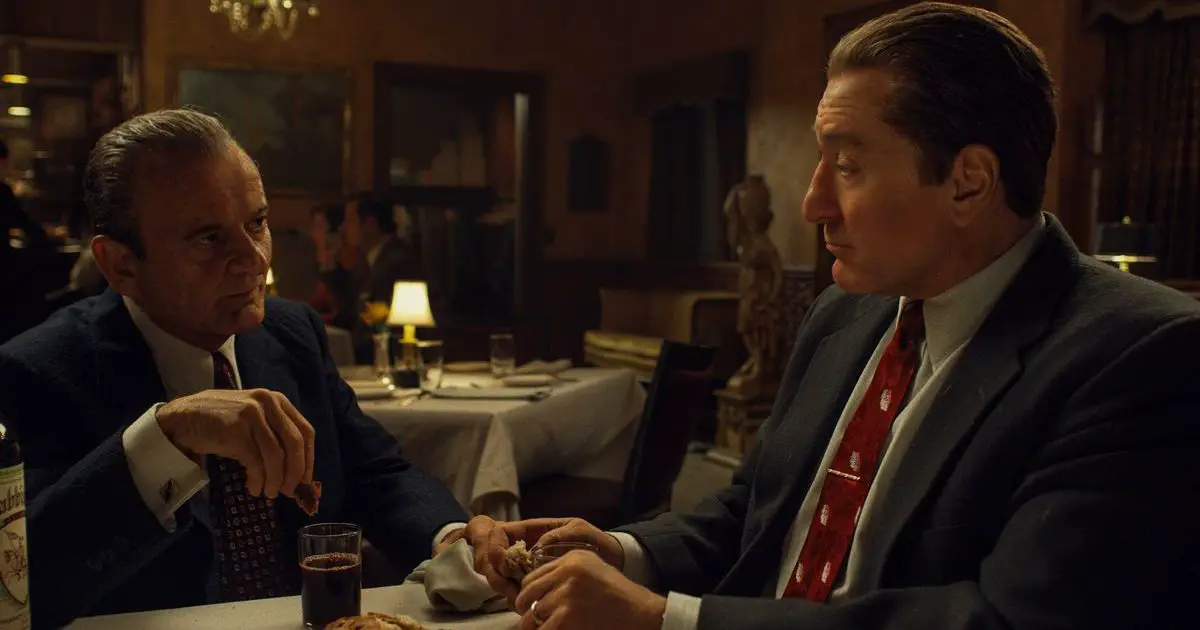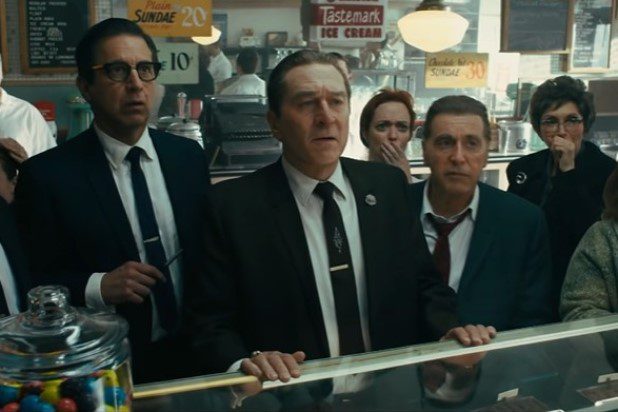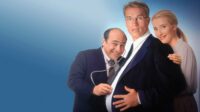What is it like to know that your life is coming to an end, to know that your days are rapidly running out? To see those you spent a majority of your life with go and there you are, faced with the reality that your time is soon coming to an end? What would you want to say, to do, to fix or change? It’s a feeling most people reading this article aren’t familiar with, but one day perhaps could be in that position. Martin Scorsese’s The Irishman poses many end of life thoughts and questions, in addition to much more. If you’re looking for a spoiler-free film review, Will Johnson has written a tremendous review. In this article, I’ll be looking at some of the themes behind the film and what I got out of it, and it will be filled with spoilers, so please beware.
A Mafia Movie…again?

Scorsese got the band back together for The Irishman, including frequent collaborators Robert De Niro and the basically retired Joe Pesci, as well as other genre icons including Al Pacino and Harvey Keitel. At first glance, you may be asking yourself if we really need this mafia film dream team coming together for a three and a half hour production that well, is largely like many other mafia films you’ve seen before. There’s death; there’s betrayal, there are Italian restaurants and plenty of music from the era of these men’s youth. The terrain feels familiar because it is familiar. A mafia film is going to hit many of the same notes as other mafia films and that’s not a bad thing necessarily.
What makes The Irishman stand out from other mafia films is what the film is telling us. Throughout cinematic history, we’ve always known the mob were “bad guys” yet we rooted for them anyway, much the same as neighborhoods in the northeastern part of the United States did in year’s past in real life. Mafia films, including Scorsese’s, have often focused on the more glamorous and flashy parts of mob life, until the end when the walls come crashing down. Even then, when consequences are being paid, we still feel an attachment to these characters—a sense that they weren’t all that bad despite the acts of violence and betrayal we’ve seen them commit onscreen. We assume that their families forgive them, despite knowing on some level how many horrible acts they’re committing to give them the lifestyle they have. The Irishman does none of this.
When the credits first rolled after the film, I found myself with a flooded mind, trying to gather my thoughts on what I had just witnessed. It’s no secret that Martin Scorsese and the film’s main cast are all men of a certain age and that their careers could realistically be over at any point. Was one of the messages they wanted this “mafia swan song” to portray that while these mafia stories they’ve told are both entertaining and historically important, the consequences were real on numerous levels? The film went to great lengths to show us through captions that most of the characters we saw died through acts of violence. The ones that didn’t died in jail, which we also saw and in the case of Frank, the film ended with him preparing for his own death, completely alone and scared. His children didn’t want a tearful reunion with him. They didn’t want to give their father a chance to make amends. Frank was left to watch the clock on his final days alone, in a self-created prison in a sharp detour from typical mafia film protocol. Was this commentary the last word from Scorsese and the gang on the reality of mob life, that crime does not in fact, pay?
History & Conspiracy Theories

Large parts of American history are tied to the mafia, both through fact and widely distributed stories. Once upon a time, people were consumed with trying to figure out who was behind the death of JFK and the disappearance of Jimmy Hoffa. These were figures and stories that transcended beyond one generation, but today, how many younger people know much about Jimmy Hoffa at all? As the film pointed out, Hoffa was as big as The Beatles in the 1960s, and by the end of the film, the nurse checking on Frank didn’t even know who he was. Like him or not, Hoffa played a huge role in American history and that impact is still felt today by workers across the country. While JFK is still certainly well known by all age ranges, how many younger people still question his murder the way previous generations obsessed over it? The answer is hardly any.
The film’s choice to not only spotlight JFK’s murder but to also assign the deed to the mafia was huge. Sure, it’s been long-rumored, but with as politically conscious as younger generations are today in the age of Trump, the murder of a United States President potentially at the orders of the mafia and then the cover-up that followed is something that can’t ever be forgotten to the annals of time. History repeats itself, and I’m not implying that anything could happen to a modern-day leader but rather, how it should be studied and remembered that there are always forces behind the curtains working away at things we, the common people don’t know anything about. Once upon a time, the mafia was a part of that. Could something like that ever happen again? I’m not taking a position but just like this film, I agree that history should never be forgotten.
Martin Scorsese and the top-billed cast in The Irishman lived through JFK, Cuba, and Jimmy Hoffa. These were stories that defined significant periods of their lives and thoughts they’ve carried with them for years. Not only telling these stories but taking a stand on both the death of JFK and Jimmy Hoffa feels somehow fitting for what will likely be their last mafia film together—a cinematic mark they’ve probably wanted to leave for many years now.
The Sopranos Effect
While The Godfather trilogy and later, the work of Martin Scorsese shaped and defined how most view mafia films, it’s impossible not to look at how David Chase’s The Sopranos changed both the culture and conversation around these films and the genre as a whole. David Chase stripped away the glitz and glamour of mob life and humanized that world in ways that had never been done before, largely due to the ongoing nature of television stories. While Chase went to great lengths to show the men and women inside this world as three-dimensional beings that face the same trials and tribulations we all do, he went to great lengths to not cast any judgements on whether crime paid or didn’t pay. The ambiguous ending of The Sopranos asks us the viewer to make our own determination of the fate of not only Tony but of all those around him.
The Irishman took notice of the genre’s evolution and left its mark. Instead of asking the audience to come to their own conclusions as Chase did, Scorsese and company left no doubts as to what the end of the road looked like. Sure, you could play out a scenario in your head where Frank’s daughters didn’t let him die alone but none of the rest of the film points towards that being a logical conclusion. This was a definitive statement on mafia life, fitting for what will likely be the final chapter in Scorsese’s “mob career”.
The film wasn’t as successful as The Sopranos in terms of fully humanizing the characters, but that’s mostly due to time restraints in film. (Insert joke here about time restraints in a three and a half-hour film.) That being said, the film did follow on that same path of mafia evolution that Chase started where we got to see more of what made these characters tick, what their motivations were, what friendship looked like to them and most importantly, the consequences of their actions.
Final Thoughts
The Irishman wasn’t without its faults and certainly was ambitious. For me, this film was all about the end of an era and what needs to be said about that era. Making sure that truths were spoken, that realities were acknowledged and that a chapter could be closed as properly as possible. This film gave many talents of a generation we’re slowly losing a chance to ride together again, for one last epic tale. They got to make their final statements on mafia life and family. They got to acknowledge history, how easily it is forgotten, but why it shouldn’t be. The film industry is changing, America is changing, and the world is changing. These all-time greats know that they’re part of a time that is over and while they’re still here, and likely to create more art, the window for all of them together to tell one more story together, their way, is closing. Years from now, I hope that’s what this film is remembered for.
As a person, The Irishman left me thinking about the life I’m living, the example I’m setting for my children and about making sure I’m externally the person I internally feel like I am. Robert De Niro as Frank, alone in his room at the nursing home, afraid to have the door shut due to the finality it represents, is as haunting an ending to any film that I can remember. Nobody wants the ride to end, for this journey to be over, but death is a reality. What are we doing before it comes, whether sudden or sitting in a chair waiting for it?



Well-written, challenging and interesting article whose antithesis is clear and poignant. To what extent it is revelatory and inflective to us mesmerised, Joy-directed, de-individuated film buffs is questioning and perhaps neither here nor there.
I haven’t seen the movie but look forward to it. Looks like a great flick!
Awesome